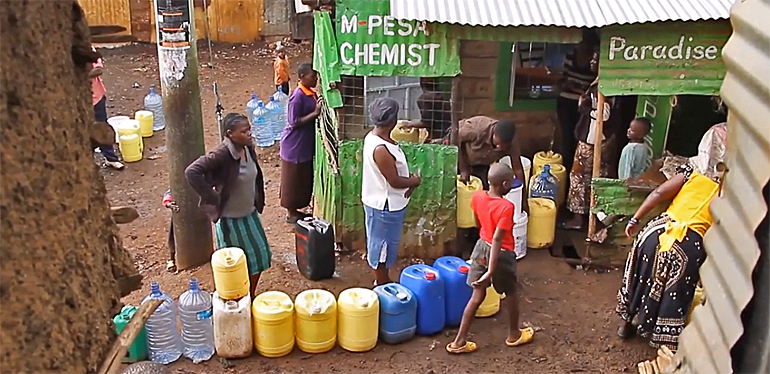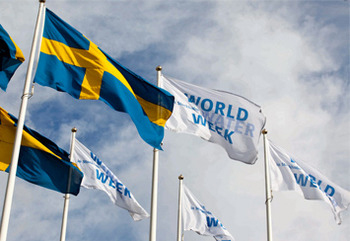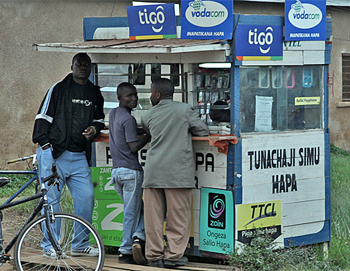Stockholm Water Week: Teaming up with energy service deliveries makes sense in world's poor places

In an increasingly resource-challenged world, what will the water-energy future look like? Is it possible to develop social entrepreneurship that can provide access to water and energy for all, based on affordable and financially sound delivery services to poor people?
This will be the key question at the seminar 'Designing our water-energy future' as part of the Stockholm Water Week on Thursday 4 September.
It will be one of 100 seminars, workshops and panel meetings to take place throughout the week and contribute to this year's central theme of water and energy.
The event is co-organised by the Australian International Water Centre and several Dutch-based organisations, including Aqua for All.
 Improved service delivery
Improved service delivery
The programme of the seminar promises a lively dialogue with private, public and academic panelists from the water and energy sectors.
From different perspectives they will challenge current paradigms on access to water and sanitation facilities in poor areas.
Examples will draw from developing countries where vulnerable communities have the most to lose from mismanagement of water and energy resources, but also the most to gain from improved service delivery.
More successful with decentralised solutions
According to director Sjef Ernes of the Dutch-based foundation Aqua for All, the water sector can benefit from teaming up with financially more viable energy supply projects.
He challenges the water sector not to take the lead position but join existing energy service delivery. "Take solar energy, that is a booming business in Africa. The energy sector has managed to tap into the low-income consumer market with decentralized solutions. That is something we all could learn from in the water the water sector", assures Ernes.
 Energy financial more viable
Energy financial more viable
There is another advantage for the water sector to team up in energy projects, says Ernes. "Water supply is considered a costly investment only, where as energy supply is also considered to bring in revenues. This is a huge difference when looking for investors. They are more willing to invest in infrastructure when it includes energy supply."
Another important aspect for him is the urban planning. "The third advantage of combining the water and energy service delivery is the fact that the supply of public goods can be integrated in new urban developments".
For Ernes it all boils down to new business models that combine impact investments for building infrastructure and cash flow from reliable service delivery.
Different leadership
One of the aspects that will also be discussed at the seminar is that of leadership. What are the requirements for new leadership that has both technical understanding as well as a strategic vision across both sectors?
Panel-audience and small group discussiosn will explore necessary changes to support integration in decision-making and effective business models.
Outputs of the seminar will be encapsulated in a discussion paper to further the dialogue.
Also read on this website
• Stockholm Water Week: Photo coverage highlighting some remarkable Dutch contributions, 8 September 2014
• Stockholm Water Week: Joint water-energy supplies in poor areas not as obvious as it seems, 8 September 2014
• Stockholm Water Week: Rainwater management crucial for eradication global poverty, 4 September 2014
• Stockholm Water Week: Seven Dutch winners in cutting edge technology challenge on water and food, 3 September 2014
• Stockholm Water Week: Yes, access to clean drinking water for all, but how?, 2 September 2014
• Stockholm Water Week: Unesco-IHE puts drip irrigation in perspective, 27 August 2014
• Dutch buzzword at Stockholm water week will be sustainable water services, 22 August 2014
More information
Programme Stockholm Water Week
Designing our Water|Energy Future: Challenges, Opportunities and Leadership required, 4 September 2014
Sam Parker of Water & Sanitation for the Urban Poor (WSUP) explains the need for social entrepreneurship.



